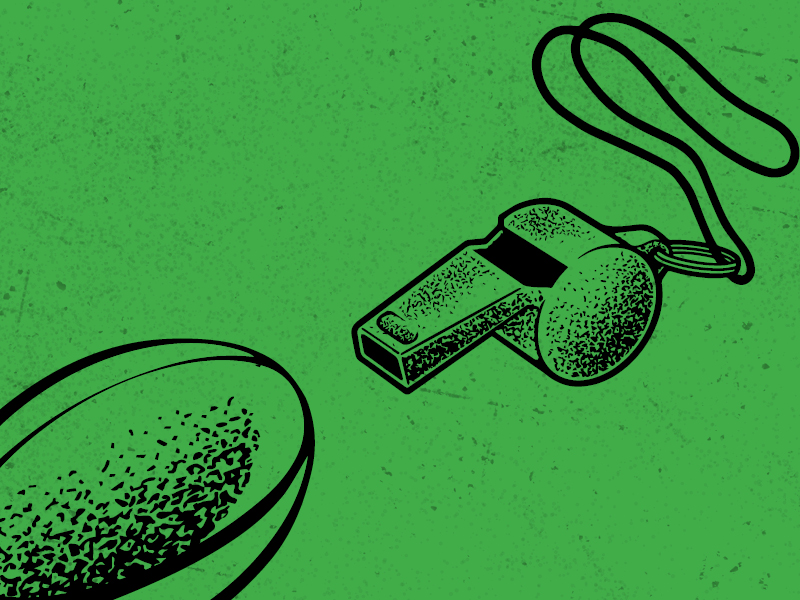Kia ora. I am Nico Fox and I grew up playing rugby in Thames. My first experience refereeing was at a young age when I helped my father, who was coaching my brother’s rugby team, to referee a game. I kept playing rugby after that, but at the age of 14, I realised I was over rep rugby/touch and having to train all the time, so I decided I wanted to referee more. I went back to playing, but at 17, I decided just to be a referee.
After more than ten years of playing rugby, being the man in the middle is the best seat in the house. You can view the game from another perspective through refereeing: one in which you are highly involved.

THE HIGHS AND LOWS
CAREER
Over the years of refereeing, I have been involved in various games and interacted with multiple people, and throughout highs and lows, I have gained many skills. These skills have helped me to create personal and professional confidence early. Confidence is essential to make your mark and set your standards to develop a good relationship and mutual understanding among the rugby community.
Professional sports are on the rise, and so is the need for referees. Refereeing is now a full-time career! Top professionals are travelling worldwide, mixing and mingling with famous athletes while getting paid. Professional rugby referees can earn up to $200,000 salary plus paid travel costs,
accommodation and game fees. The HSBC Sevens circuit is also a fantastic career choice – skipping around the world, refereeing at various locations and getting to know new countries and cultures.
OPPORTUNITES
Rugby is always looking for new referees. In my eight
year-career, I have been fortunate enough to attend
multiple tournaments and events around Aotearoa New Zealand and internationally. These life-changing experiences allowed me to visit amazing places and participate in world-class games while making incredible lifelong friends.
FUN FACTS
People may think your Prem player is the expert on a Saturday arvo at rugby. Are they? Not only does the referee need to be technically onto it by understanding and keeping up with new rules each year, but they also have to maintain physical fitness. On average, a rugby referee runs 7km each game, depending on the level – the same, if not more than, the players!
WHERE IS THE RUGBY REFEREE GOING?
It is impressive how far rugby has come with the introduction of technological advances. While many companies are moving to more robotic and fewer face-to-face processes, a human will always need to referee a game. Undoubtedly, technology will only further evolve – but is it for the good or the bad? In the past decade, referees have become the centre of online hate but why? The introduction of Slow Motion video and Television
Match Officials (TMO) has opened the door to viewing rugby in a form we have never seen before and certainly don’t see on a Saturday arvo. This new technology is beneficial in critical decision making around specific events and ensuring we
make the correct decision. However, this has also allowed the public, who have never refereed before, to only view the game in the perspective of slow motion slowed-down shots, resulting in them becoming more critical, in particular when
games (and referees) don’t have the luxuries of technology.
Words by
Nico Fox






